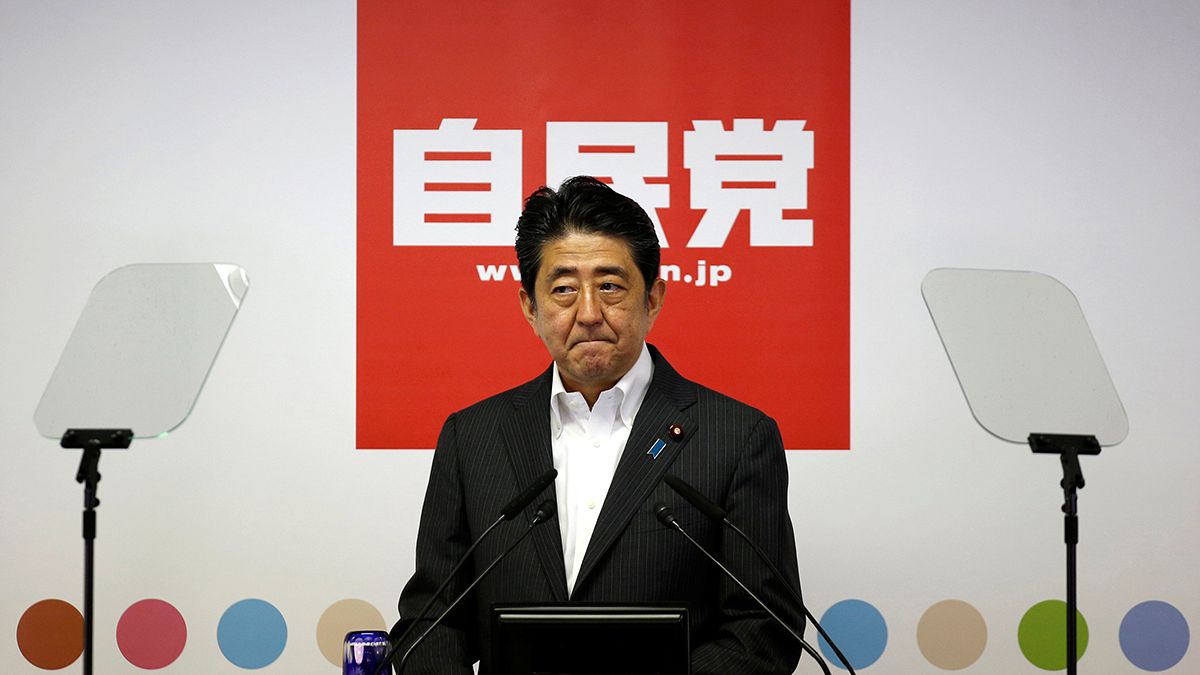Japanese Prime Minister Shinzo Abe’s landslide election victory is a double-edged sword.
Japanese Prime Minister Shinzo Abe’s landslide election victory is a double-edged sword.
His LDP-led coalition won two thirds of the seats in the upper house which, combined with the support already in place from the lower house, means he can seek to revise the country’s pacifist constitution for an historic first time.
But, as he admitted, changing the charter is not going to be easy.
Japan PM says not so easy to revise constitution, wants deeper debate https://t.co/f5tyZEX6llpic.twitter.com/zhDKTYaheQ
— Reuters World (@ReutersWorld) July 11, 2016
Concerns over Article 9
In place since the end of the Second World War, the constitution’s war-renouncing Article 9 is causing particular concern both at home and abroad.
It technically bans the maintenance of the military, but has been interpreted to allow armed forces for self defence and most recently was stretched to enable Japan to assist if its allies are under attack.
China’s official news agency Xinhua claims revising the Article would be a threat to regional stability.
“With Japan’s pacifist constitution at serious stake and Abe’s power expanding, it is alarming both for Japan’s Asian neighbours, as well as for Japan itself, as Japan’s militarisation will serve to benefit neither side,” it reported.
Changing the charter requires the backing of two thirds of both houses and majority support in a public referendum. But polls suggest many of Japan’s voters are also wary of an amendment. Some consider Article 9 the driving force behind peace in Japan.
In addition, Abe’s pro-revision camp has diverse views.
Ruling Coalition Sweeps Japan Upper House Elections, Putting Constitutional Reform in Reach https://t.co/pmj4f6P3iYpic.twitter.com/IdJNj1z5Z0
— The Diplomat (@Diplomat_APAC) July 10, 2016
Other options?
He may, then, consider other options first, such as a clause giving the government more power in a national emergency, or an environmental protection clause.
While it is not clear how the prime minister’s political base would react to any proposed amendments, building an agreement is likely to be challenging.
